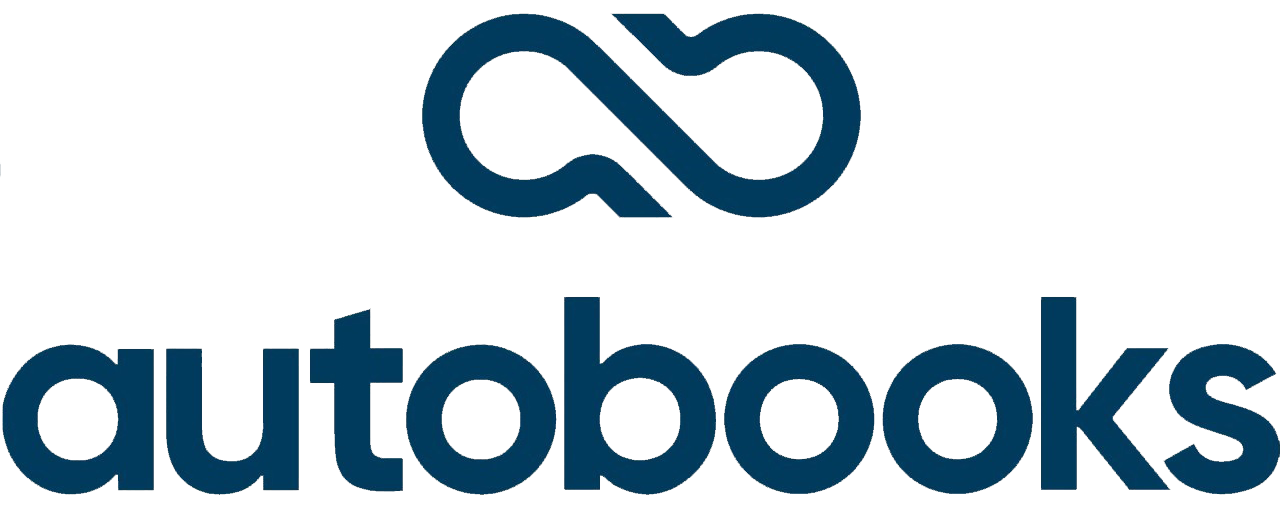The Bottom Line – Banking on Longevity

Banking on Longevity
Family-owned businesses represent unique wealth creation – and preservation – opportunities. We can help with both.
Anybody can start a business. It’s not that hard. An idea, some capital, a few customers and you’re off!
Keeping that business going, however, and building up a wealth-creating asset, is a much more complicated and difficult process.
Family-run businesses make up the great majority of businesses in the United States – 87 percent – by tax return estimates. Family businesses are responsible for employing 59% of the private sector workforce, accounting for 83.3 million jobs. They also generate about 54% of private sector GDP, or $7.7 trillion annually.
Privately owned, family-run businesses are a vital part of our national economy, and they're a critical focus of our business at Country Club Bank. There are some good reasons for that.
First, we’re a family business ourselves and we understand how they work. We know the importance of communications, succession-planning, and working with experts who can provide unbiased advice and make progress against goals.
In fact, we’ve already gone through the process. Our next generation is in place and growing. We’ve taken the time to prepare and plan for the good of our customers, as well as our shareholders.
Second, we’re part of the local community. We know what’s important to our clients and other business leaders, and we want to help them build up our community with new ideas, connections and investments.
Lastly, we’ve created separate teams of merger and acquisition advisors, and wealth management professionals - all under one roof - so when our clients have the need, we’re ready to help.
For many years now as an organization we’ve been guided by the simple belief that “people don’t care how much you know, until they know how much you care.”
We are proud of our team of professionals and all the years of experience they bring to the table, but most of all, we’re proud of how much they care.
And we welcome the opportunity to prove it to you.

— Mark C. Thompson, Vice Chairman, Country Club Bank — Member FDIC
Economic Insights
The labor market is softening. Why that may be a good thing.
Fewer job openings and rising unemployment aren’t usually reasons to celebrate, however, these latest labor statistics are welcome news for capital markets and inflation hawks.
With unemployment coming in at 3.8% in August (up from 3.5%) and job openings falling to 8.8 million (down from a high of 12.0 million in March 2022) while also seeing job openings fall from 2.0 to 1.0 for every unemployed individual to 1.4 to 1.0 today, these are the most reliable signs yet that the labor market is softening and the Fed’s efforts to curb inflation are on track.
Why does it matter if inflation is already falling without a labor contraction?
The explanation revolves around the distinction between headline and underlying inflation. Headline inflation, which represents the publicly reported increase in prices, experienced a notable shift from being below 2% (the Fed’s target rate) in early 2021 to reaching 9.1% by June 2022.
This drastic increase can be attributed to factors such as disrupted supply chains, heightened consumer spending due to stimulus measures and lockdowns, as well as escalating oil prices due to geopolitical unrest. However, inflation has dropped significantly this year to below 4%, mainly due to a normalization from the Ukraine war, a slowdown in housing costs, and flatter health insurance increases.
The critical question here is: What is the state of underlying inflation, which essentially reflects the rate once all these unique influences have dissipated? This hinges largely on the equilibrium between total supply and demand, with the labor market serving as the most reliable indicator. To simplify, even if inflation recedes to 2%, it may not remain at that level if the labor market is exceptionally tight and causes wages to rise at an accelerated rate.
The narrative of a cooling economy doesn't find strong support in the job growth data since payrolls increased in August by 187,000, which is still higher than historic averages. However, it's important to acknowledge that this data needs to be considered in the light of persistent pandemic influences that we’ve never really encountered before and we are still seeing total nonfarm payroll jobs slowing on the margin from 3.3% growth at the beginning of 2023 to 2.0% in August 2023.
And though inflation ticked up to 3.7% in August, from 3.2% in July, it still appears to be under control and the Fed decided to leave interest rates at current levels during its most recent meeting.
Bottom Line: A looser labor market is necessary for inflation to go down and stay down. It does clash with economic output numbers, though, since gross domestic product demonstrated a robust annualized growth rate of 2.1% in the second quarter, and estimates are calling for above 3% in the third quarter.
But consumer spending is also showing signs of change as consumers are trading down for some necessities like dog food, cleaning supplies, and restaurants, as “needs” vs. “wants” lists are more carefully scrutinized. We also question how material of an impact student loan payments starting up again will have on the consumer.
All of this leads to broader questions on what the real rate of inflation should be going forward (is the Fed’s 2% guidance accurate?). The forecast for inflation impacts the Fed’s target for longer run interest rates. When this forecast was first introduced in 2012, the Fed’s longer run interest rate forecast was 4.25%. That fell all the way to 2.5% in 2019, which is where we remain today. Recently, the Fed appears to be slowly working towards moving this forecast higher again with their most recent guidance staying at 2.5%, but with a range of 2.5%-3.3%.
It's important to remember that all of this is a prediction. If inflation experiences a smooth decline over the next year, if economic growth suddenly decelerates, if the unemployment rate continues to move higher, then inflation will likely continue to fall, as will the actual interest rates.

— Marcus Scott, CFA, CFP®, Chief Investment Officer (CIO) for Country Club Trust Company
CFA® and Chartered Financial Analyst® are registered trademarks owned by CFA Institute.
Certified Financial Planner Board of Standards Inc. (CFP Board) owns the certification marks CFP®, CERTIFIED FINANCIAL PLANNER™, CFP® (with plaque design), and CFP® (with flame design) in the U.S., which it authorizes use of by individuals who successfully complete CFP Board's initial and ongoing certification requirements.
The opinions and views expressed herein are those of the author and do not necessarily reflect those of Country Club Trust Company, a division of Country Club Bank, or any affiliate thereof. Information provided is for illustrative and discussion purposes only; should not be considered a recommendation; and is subject to change. Some information provided above may be obtained from outside sources believed to be reliable, but no representation is made as to its accuracy or completeness. Please note that investments involve risk, and that past performance does not guarantee future results.
Mergers & Acquisitions
CC Capital Advisors helps Hohenschild Welders Supply find the right buyer - for the owner, and employees
Perry Johnson Jr., was ready to sell, and needed help with the succession plan. With the assistance of CC Capital Advisors', he found a well-capitalized acquirer with industry experience and compatible goals - including the retention of his management team and all employees.
 Hohenschild Welders Supply, a Kansas City-based distributor of packaged gases and welding supplies, faced a critical transition when owner Perry Johnson Jr., decided to sell. To optimize the process and oversee the details, he selected CC Capital Advisors.
Hohenschild Welders Supply, a Kansas City-based distributor of packaged gases and welding supplies, faced a critical transition when owner Perry Johnson Jr., decided to sell. To optimize the process and oversee the details, he selected CC Capital Advisors.
CCCA's served as Johnson's advocate and advisor throughout the sell-side process so Johnson could continue running Hohenschild. CCCA handled all the details of discovery, due diligence, pricing, marketing, and closing, ultimately facilitating the sale of Hohenschild to Meritus Gas Partners - with the guarantee that all Hohenschild managers and employees would keep their jobs.
CC Capital Advisors, Inc. is a subsidiary of Country Club Bank, Kansas City, MO. Products and services offered are not FDIC insured; are not deposits of, or guaranteed by any bank or by CC Capital Advisors; are not insured by any federal government agency; and involve investment risks, including possible loss of principal. Member FINRA, SIPC
Small Business Solutions
Autobooks: A convenient way for your small business to invoice and get paid faster
Invoicing and getting paid are crucial for small business owners. But managing it can eat up a lot of time. That’s why so many small business owners love Autobooks.
 Autobooks is a simple way to invoice customers and have them pay you directly into your Country Club Bank business banking account.
Autobooks is a simple way to invoice customers and have them pay you directly into your Country Club Bank business banking account.
- No need to transfer funds from a third-party app since you get paid directly inside your Country Club Bank business account
- Customers can pay with a credit card, debit card, or electronic bank transfer (ACH)
- You can create and send customized digital invoices with your business logo
- You can share a secure payment form link on any invoice, text message, social media profile, or web page
- You can easily stay on top of your receivables, viewing all your transactions in one place
To learn more, watch a video on how Autobooks work. If you have questions, contact your banker or reach out to us at [email protected].
Wealth Management
Trusted, unbiased advice provides peace of mind
 Managing your family or personal financial affairs is similar to running a business. You want to see consistent growth over time, while managing your risk appropriately to avoid a setback you cannot easily recover from. You need a plan and a trusted advisor to be with you on the journey. One that has been down the path many times before. At Country Club Trust Company we focus on providing trusted and unbiased financial advice to help provide the peace of mind that you and your family are on the right path towards seeking your future goals.
Managing your family or personal financial affairs is similar to running a business. You want to see consistent growth over time, while managing your risk appropriately to avoid a setback you cannot easily recover from. You need a plan and a trusted advisor to be with you on the journey. One that has been down the path many times before. At Country Club Trust Company we focus on providing trusted and unbiased financial advice to help provide the peace of mind that you and your family are on the right path towards seeking your future goals.
As you accumulate wealth over time your financial life can become more complex. It is important to have a plan that addresses the following:
-
Develop a financial plan to serve as a blueprint through life’s many transitions
-
Build a customized investment portfolio aligned with your goals and risk tolerance
-
Manage your risk through proper insurance coverage
-
Establish an estate plan to protect and distribute you assets accordingly
-
Integrate tax efficient strategies into your overall financial plan
If you are looking for trusted, unbiased advice our team of local advisors is here to help. Feel free to Contact Us or visit our website if you are interested in learning more.
This information is intended for discussion purposes only and should not be considered a recommendation. The information contained herein does not constitute legal, tax or investment advice by Country Club Trust Company. For legal, tax or investment advice, the services of a competent professional person or professional organization should be sought. Trust services and investments are not FDIC insured, are not guaranteed by the Trust Company or any Trust Company affiliate, and may lose value.
Newsletter Sign-Up